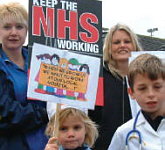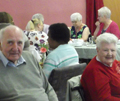From co-operation to competition and fragmentation
 The experience of neighbourhood youth projects in Newcastle – In our latest story about commissioning, Michael Bell from the Patchwork Project in Newcastle describes the experience of local groups bidding against the big boy Barnardo’s..
The experience of neighbourhood youth projects in Newcastle – In our latest story about commissioning, Michael Bell from the Patchwork Project in Newcastle describes the experience of local groups bidding against the big boy Barnardo’s..
Co-operating
Several years ago nine neighbourhood-based projects from acrossNewcastlestarted to meet in order to find ways of working better together, … Continue reading









